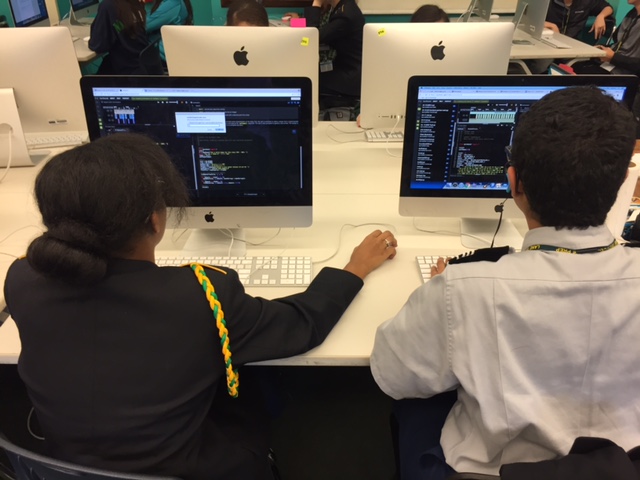The White House recognized Georgia Tech last Monday for a coding program that uses music to teach code. It was recognized as part of its national initiatives for Computer Science Education Week.
EarSketch is a free online tool that uses music to teach the programming languages of Python and JavaScript.
Georgia Tech professors plan to expand the program to more than 250 middle and high schools nationwide next year.
Music Production
Georgia Tech music professor and co-founder Jason Freeman said part of EarSketch’s appeal is that it looks similar to programs music producers would use like GarageBand and allows students make their own music.
“They write code that let them do things that are common in music production software like taking an audio clip and putting it on a particular track in a particular measure, or creating a rhythm, or adding an effect and changes to that effect over time like some distortion or some reverb to make the music,” Freeman said. “But then they also learn about algorithms and computational thinking.”
Freeman said he was looking for ways to attract different demographics to computer science – especially girls.
Demographic Diversity
Amy Wozniak, a high school computer science teacher at Lane Tech College Prep in Chicago, said EarSketch is working.
“A lot of students are intimidated by the topic and are fearful of it, but when they see a course that says, ‘Oh we’re going to mixing beats and making music,’ then that appeals to a bigger audience, and that’s kind of a cool hook,” Wozniak said.
At Berkmar High School in Gwinnett County, Leah dee Kilgore teaches math and computer science.
She said it’s also attracting students beyond the ones who are perceived to be “geeky” or are loaded with AP classes.
“The kids that are in the middle are finding this really interesting and broadening their perspective on what could they do when they get out of school,” Kilgore said.
Kilgore said EarSketch is helping make computer science cool. Last year, her class had 16 students. This year, there are 90.
Gender Diversity
Both Wozniak and Kilgore say girls make up about 30 percent of their classes, the highest percentage they’ve ever seen.
Freeman said diversity is important for the evolution of both music composition and technology.
“I think that these fields aren’t going to advance unless we’re bringing a really diverse population to the table to contribute to their future,” Freeman said.
Like us on Facebook

9(MDAxODM0MDY4MDEyMTY4NDA3MzI3YjkzMw004))








